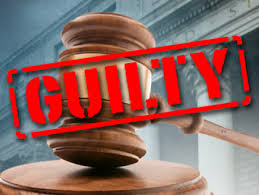
Cromwell oil company owner Kevin Wieck has been found guilty of defrauding investors in his firm. He was convicted by an Oklahoma City federal jury on ten counts of wire fraud and five counts of money laundering.
Wieck, 52 owned and operated Wieck Oil Company, LLC and received $1.17 million from investors in Tulsa, Edmond, Michigan, Illinois and other places. Prosecutors say he pocketed at least $600,000 for himself.
He could face up to 250 years in sentences and a fine of $250,000 on each count. Wieck will also have to reimburse his investors.
A federal grand jury had indicted him in July accusing him of a fraudulent scheme involving vertical and horizontal wells.
” Wieck sold working interests in the vertical wells that supposedly guaranteed investors percentages of oil revenue. He allegedly kept the majority of the money for himself rather than paying investors. Wieck sold and attempted to sell percentages of his supposed ownership interest in the horizontal well, when he in fact never actually owned—and therefore had no right to sell—any portion of that well,” stated the U.S. Attorney’s announcement. “The five money laundering counts involved transfers of criminal proceeds in amounts larger than $10,000 between bank accounts. According to the indictment, Wieck fled to Mexico around late August 2014. He has been in the custody of the U.S. Marshals Service since April 11, 2018.”
Eight investors testified against Wieck in his trial. They stated they had invested cash and co-signed loans with Wieck or provided in-kind services such as drilling, road work and construction on the wells at reduced rates. Two investors claimed Wieck had solicited investments in the horizontal well. But a local energy company executive who later took over control of the three vertical wells confirmed Wieck had a right to participate in the horizontal well but never paid to exercise the right.
The executive explained Wieck filed oil and gas assignments late and failed to secure division orders to pay investors directly. Instead, Wieck exercised a “quick pay” option which funneled all revenue into his own bank accounts.
An FBI forensic accountant confirmed during trial that Wieck received more than $1.17 million in revenue and—even after production and operating costs—pocketed at least $600,000, in addition to the value of investors’ in-kind contributions. Wieck’s ex-wife corroborated that she and Wieck splurged on hotel stays, vacations, and large purchases when investments came in.
After three days of testimony, a jury deliberated for approximately two hours before returning guilty verdicts on all counts on September 14.






